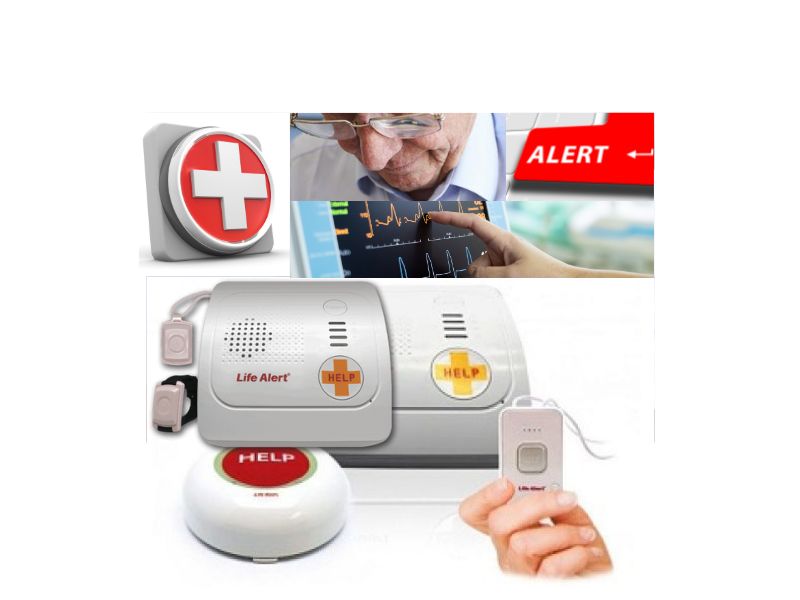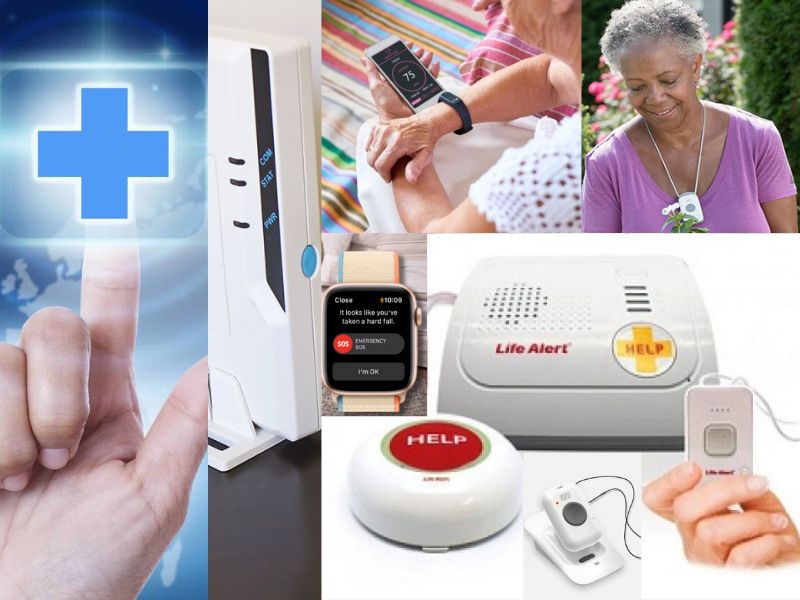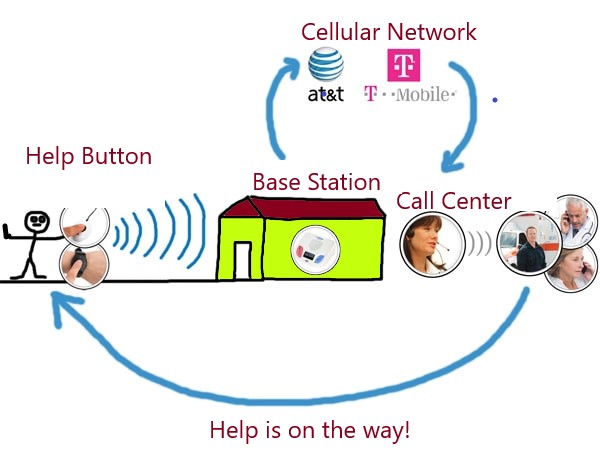Medical alert systems have become critical for seniors and people with mobility issues. With age and physical disabilities, performing daily tasks and responding to emergencies becomes difficult. Medical alert systems provide the necessary assistance and ensure the safety and well-being of individuals with mobility issues.

What are Medical Alert Systems?
Medical alert systems are wearable devices that enable people with mobility issues to call for help in emergencies. These systems consist of a base station and a wearable device. The base station connects to the monitoring center, and the wearable device can be worn as a pendant, bracelet, or clip-on.
When the user requires assistance, they press the button on their wearable device, which sends a signal to the base station. The base station then contacts the monitoring center, which dispatches help to the user. Medical alert systems can provide peace of mind and security to seniors and people with mobility issues.
Types of Medical Alert Systems
There are two types of medical alert systems: monitored and unmonitored. Monitored systems connect to a monitoring center, while unmonitored systems do not. Unmonitored systems rely on a pre-programmed emergency contact list.

Monitored systems are the most popular and offer 24/7 professional monitoring. The monitoring center can dispatch emergency services, contact family members or friends, and even provide medical advice. Unmonitored systems are less expensive but do not provide professional monitoring.
Factors to Consider when Choosing a Medical Alert System
Choosing the right medical alert system can be a daunting task. Several factors need to be considered when selecting a system. Here are some essential factors to consider:
- Ease of Use – The system should be easy to use, even for people with limited mobility or vision impairment.
- Battery Life – The battery life of the wearable device is essential, as it determines how often the device needs to be charged.
- Range – The range of the device is critical, as it determines how far the user can be from the base station and still receive a signal.
- Monitoring Service – If you opt for a monitored system, ensure that the monitoring service has a good reputation and provides quality service.
- Cost – The cost of the system is an essential consideration, as it should fit within your budget.
Benefits of Medical Alert Systems
Medical alert systems provide several benefits to seniors and people with mobility issues. Here are some of the advantages:
- Peace of Mind – Medical alert systems provide peace of mind, knowing that help is just a button press away.
- Independence – Medical alert systems allow seniors and people with mobility issues to remain independent, as they can call for help without assistance.
- Safety – Medical alert systems ensure the user’s safety, as emergency services can be dispatched quickly.
- Convenience – Medical alert systems are easy to use and provide convenient access to emergency services.
Common Concerns and Misconceptions about Medical Alert Systems
Medical alert systems have become increasingly popular among older adults and people with disabilities who live independently. However, despite their many benefits, people may have some common concerns and misconceptions about using these devices.
Difficult to Use
One of the most common concerns people have about medical alert systems is that they will be difficult to use, especially for those who are not tech-savvy. However, most medical alert systems are designed with ease of use in mind. They often come with large, easy-to-read buttons and simple instructions for setup and use. In addition, many systems have 24/7 support available to assist users with any issues.

Expensive
Another common misconception about medical alert systems is that they are expensive. While there may be some upfront costs associated with purchasing the device and setting up the service, the cost of a medical alert system is often much lower than alternative options such as assisted living or hiring a caregiver. Additionally, some systems offer affordable monthly plans with no long-term contracts.
Only for the Elderly
Another misconception about medical alert systems is that they are only for the elderly. While older adults commonly use medical alert systems, they can also benefit people of all ages with mobility issues or medical conditions requiring quick access to emergency services.
Unreliable
Some people may hesitate to use a medical alert system due to concerns about reliability. However, modern medical alert systems are designed with advanced technology to ensure reliable performance. They often come with backup batteries and cellular connections to ensure the device remains functional during power outages or network failures.
Invasion of Privacy
Finally, some people may be concerned about the privacy implications of using a medical alert system. However, in an emergency, most systems are designed with privacy in mind and only collect necessary information, such as the user’s location and medical history. In addition, many systems allow users to control who has access to their information and when it is shared.
While there may be some common concerns and misconceptions about medical alert systems, the benefits of using these devices often far outweigh any potential drawbacks. By addressing these concerns and clarifying any misconceptions, we hope to help more people make informed decisions about using a medical alert system for themselves or their loved ones.
Conclusion
Medical alert systems have become vital to senior care and people with mobility issues. They provide peace of mind, safety, and independence to individuals who require assistance. When choosing a medical alert system, consider factors such as ease of use, battery life, range, monitoring service, and cost.
If you are in the market for a medical alert system, research your options, and choose the system that best fits your needs. Remember, a medical alert system can provide extra security and peace of mind to seniors and people with mobility issues.
